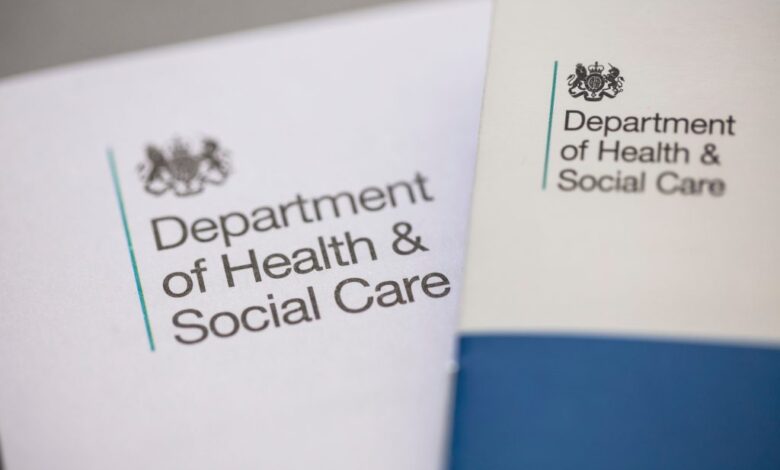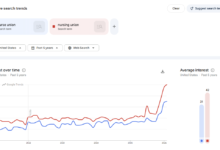Some outsourced nurses to get one-off payment after government U-turn

Thousands of nursing staff, and other healthcare workers, who were set to be excluded from a one-off payment promised after this year’s industrial dispute, will now have their bonuses funded.
The Department of Health and Social Care (DHSC) today announced a funding package for non-NHS organisations delivering NHS health and social care, such as charities, local authorities and social enterprises.
It is designed to ensure they can now afford to pay staff a £1,655 minimum bonus – though some staff will still be left out of the arrangement.
“The department must provide clarity on who will receive the funding”
Patricia Marquis
The bonus was pledged as part of the 2023-24 pay deal, which sparked health unions, including the Royal College of Nursing (RCN), Unison, and others, to go on strike about earlier this year.
When the deal was agreed, many nursing staff were excluded from the one-off bonus as the DHSC did not fund certain employers to cover it – namely, an organisation not directly inside the NHS, or specified in Annex 1 of Agenda for Change.
Many of these employers, which included non-profit, social enterprise, and primary care organisations, said they could not afford to pay staff this bonus without government support.
One community interest company (CIC) leader, who is also a registered nurse, said funding the bonus would have cost his organisation around £3.7m – a sum it did not have to spare. This leader criticised a “two-tier” structure of NHS pay, and called on DHSC to change its mind.
Health and social care secretary Steve Barclay told Nursing Times, shortly after the first announcement, that this disparity was by design, “part of the deal”, and what the unions had agreed to in the summer during pay negotiations.
Employers, staff and unions have subsequently petitioned the government to fund the bonus, claiming that not to do so would be unfair both to workers and bosses.
At the end of October, Social Enterprise UK, which represents among others non-NHS organisations that provide NHS care, filed for a judicial review to challenge it.
In today’s announcement, health minister Will Quince said the DHSC has “listened to concerns” from employers about the economic situation and that it would “on this occasion” step in to help them fund the deal.
Mr Quince said the move was made to mitigate the impacts of the “difficult economic context”.
He added: “This will ensure hardworking healthcare staff and the organisations they work for are not financially disadvantaged as a result of the NHS pay deal, and means they will receive their backlog bonus for their efforts during the pandemic.”
The NHS one-off bonus issue
The department will now issue additional funding to cover the cost of the one-off deal with money due to arrive in eligible organisations’ budgets by the end of April 2024.
Peter Holbrook, chief executive of Social Enterprise UK, welcomed the announcement, having campaigned for months for such a U-turn.
“We’re pleased to see the government acknowledge the critical role of social enterprises in the NHS family, with tens of thousands of staff delivering vital care across the country and services reinvesting profits to help local communities,” he said.
“We have campaigned tirelessly for our members to get the recognition and reward they deserve, and will continue to hold the department accountable for delivering on the minister’s promise that crucial healthcare staff won’t be financially disadvantaged by working in social enterprises.”
To get this money, an organisation must apply for it, demonstrate they have been negatively impacted by the pay deal, and show their staff are employed on dynamically linked Agenda for Change contracts.
This latter rule means some staff will still likely be excluded, including primary care nurses, unions have warned.
RCN England director Patricia Marquis said the DHSC’s reversal on funding the one-off bonus for non-NHS organisations was “not before time”, but that it was wrong that some people were still left out.
“There are still some nursing staff delivering NHS care who will not get this if their contract is not dynamically linked to Agenda for Change,” she said.
“Pay uplifts and any one-offs should, as a rule, go to all who deliver NHS care and not leave some people behind through contractual technicalities. The department must provide clarity on who will receive the funding.
“We renew our call today for nursing staff working in general practice to also be given their full pay uplift with the money similarly made directly available by central government,” said Ms Marquis.
A DHSC spokesperson told Nursing Times that the department does not hold any data on which organisations, or how many, do or do not use the dynamic contracts.
The department, therefore, could not confirm how many staff would still miss out on the bonus.
Some health leaders have also aired worries about the sourcing of the funding for the extension of the bonus that was announced today.
Matthew Taylor, chief executive of NHS Confederation, said that, while the money was a “welcome intervention”, the fact it came from the existing DHSC budget was of further concern.
“[It] suggests that this may come at a cost elsewhere in the health service, and health leaders are clear that robbing Peter to pay Paul does the service no favours in the long run,” Mr Taylor said.
“While we are pleased that our calls have been heard and grateful that a short-term solution has been found for non-statutory providers, we are clear that the problem is only partially tackled and will need funding for future years to be found outside of existing budgets.”
Mr Taylor added that, in his view, the one-off nature of this additional payment to employers would still not address long term issues for them.
“Providers […], while grateful, will question what they are meant to do in subsequent years,” he said.
“Longer-term thinking and funding will be required to ensure that providers can continue to attract and retain the staff needed to meet the increasing demand for services.”
Similarly, director of policy and strategy at NHS Providers Miriam Deakin – which represents some health service organisations – said the change of heart from government was too little, too late.
Ms Deakin said the news would be welcome for some, but warned that the delay may have already had an impact on services for some.
“It is essential now that the process for applying for this funding is as straightforward as possible and that where organisations have delivered the one-off payments to staff already the reimbursement process is equally streamlined to minimise the impact on vital front line services.
“But we know for some organisations and patients today’s announcement will have come too late,” said Ms Deakin.
“Community providers say the failure until now to confirm central funding for nationally agreed NHS pay rises has forced some organisations to absorb the additional costs within their own already over-stretched budgets, forcing the scaling back of some services.”






